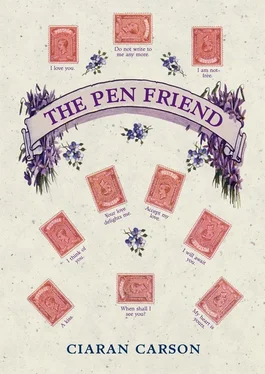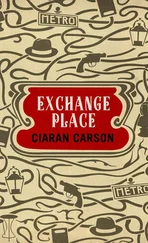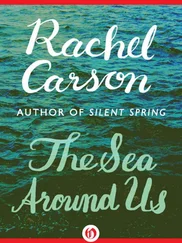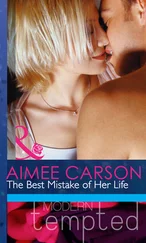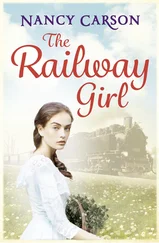Well, you said, you wouldn’t be where you are now had John Bradbury not happened to bump into you that night, you said. Oh, don’t be ridiculous, Nina, we didn’t even discuss the Gallery, it was just talk about art. Just talk about art, you said. He didn’t mention the job at all? Well, I said, and I was struggling to remember that evening, we’d both ended up well jarred, and as I thought about it, I knew you were right, just before he left he said to me, I really enjoyed our chat, Gabriel, and oh, by the way, we’re looking for someone in the Gallery, there’ll be an ad in the Irish News next week, look out for it, won’t you? He said something like that, I said. Yes, you said. That’s because John Bradbury is MO2, you said. And so are you. So maybe Hughie Falls isn’t that far off the mark. Don’t be ridiculous, Nina, how can I be MO2 when I don’t even know it? I said. You mean without your full knowledge and complete consent? you said. Well, Angel, you said, it’s like this. Some of us know from the beginning what we’re getting into, and we consent to it, and others don’t, because it takes them a while to arrive at full knowledge, and when they do, either they give complete consent, or they don’t. Some of them quit, the ones who take a long time take early retirement, whatever. Everyone of us has to make that decision, it just takes longer for some to arrive at it.
So now you know, what are you going to do about it? you said, and I didn’t know how seriously to take you, I realised that you too were a more than a little drunk. I hesitated, and before I could reply, you said, You see, Gabriel, you really are rather naïve. You really do think that art exists in some superior realm, untouched by politics, without the intervention of the Powers That Be. But I’m different, I know what I’ve got into, and I go along with it, I’ve made that compromise, but you think of yourself as being uncompromising, and uncompromised. I’ve made my decision, but you think there’s no decision to be made. You’re undecided, even though you don’t know it. But if it takes me to make a decision, then I make it, just as I could walk out the door of this pub now if I wanted to, you said. But you don’t want to, I said weakly. No? you said, and you got up and walked out. I sat there for a few long seconds, stunned, thinking this was only play-acting, that you’d be back immediately. Then I got up and went after you.
It was pouring rain outside, one of those July thunderstorms. I thought I glimpsed the heel of your red shoe disappearing down a side street, and I ran after you, but when I turned the corner, the street was dark and wet and empty. I ran on anyway, thinking maybe there’d be an alleyway you might have taken, and there was, I ran down that alleyway, and down another, but you were nowhere to be found. Then I went back to the pub, thinking you might have relented and returned, I went up to the barman and asked him if you had come back, you know, the good-looking girl with the dark hair I was sitting with, she was wearing a light blue jacket, white skirt, and he looked at me pityingly and said, no, she hadn’t been back, but you never know, would I like another drink in the meantime. And I said, yes, I’ll have a large Powers, for I could think of nothing else to do, and I still held out hopes that you might return, and I sat there drinking until closing time.
I stumbled along the corridor of the fourth floor of the Shelbourne and jiggled the key in the keyhole of Room 412, trying it this way and that until eventually it swung to. A bedside lamp was on and you were lying in bed with your eyes open. It took you a long time to come back, Angel, you said. And I lay down with you, and after a while we entered that realm which is so familiar yet so strange, where we lose each other in ourselves, and wonder if we are who we are, or someone else, and then we fall asleep still not knowing. Now I remember the perfume you put on that night before we went out, and the square-shouldered black bottle that it came in, Fracas by Germaine Cellier, 1948, a needle-sharp tang of bergamot above a shadowy musky stink of tuberose. And now I remember the corollary of that phrase of yours I read two days ago, Look for a long time at what pleases you . You’d quoted it to me in Paris when you talked about Colette, apropos of what I can’t recall. You know what Colette says? you said, and I said, No, what does Colette say? and you said, Look for a long time at what pleases you, and a longer time at what pains you.
In dreams begin responsibilities
I realise that my last letter was somewhat longer than those I had previously written. So many connections are beginning to occur to me, and that letter could have been even longer. I failed to mention, for example, that your postcard bore not just one Irish stamp, but two, one of them a 4c, the other a 48c, whose combined value, I thought, must exceed that required for a postcard to Northern Ireland, so your choice of them must have been deliberate. As you know, I was a stamp-collector in my teens, specialising in the stamps of Ireland, which appealed to me not only out of nationalistic sentiment, but because Irish stamps have always had a tradition of good design. These are no exception: they belong to the Irish Wild Flowers series of 2004, designed by the artist Susan Sex, and feature elegantly simple representations of the Violet (4c), the Dandelion (5c), the Primrose (48c), the Hawthorn (60c), the Bluebell (65c), Lords and Ladies (€2) and the Dog Rose (€5). That your card should bear a violet was especially significant, for you knew that it would remind me of John Donne’s poem ‘The Ecstasy’, which we used to quote to each other:
Where, like a pillow on a bedA pregnant bank swell’d up to restThe violet’s reclining head,Sat we two, one another’s best.I would begin, and you would reply withOur hands were firmly cementedWith a fast balm, which thence did spring;Our eye-beams twisted and did threadOur eyes upon one double string …
and so on, till, holding hands and staring into one another’s eyes, we would recite the last verse in unison. As for the primrose, it symbolises resurrection, among other things, but ‘the primrose path of dalliance’ also springs to mind. So you flit between alternatives, following the butterfly nature of your star sign. But you knew I would pick up on the stamps, for you were slightly bemused when I told you of my teenage passion for stamps; and perhaps you remembered Walter Benjamin’s essay, ‘Stamp Shop’, which I’d quoted to you as evidence that stamp-collecting could be an intellectually respectable pursuit. To someone looking through old piles of letters, says Benjamin, a stamp that has been long out of circulation on a torn envelope often says more than a reading of dozens of pages. And, further on: Stamp albums are magical reference books; the numbers of monarchs and palaces, of animals and allegories and states, are recorded in them. Postal traffic depends on their harmony as the motions of the planets depend on the harmony of the celestial numbers, said Benjamin.
Perhaps it was not entirely unexpected that the son of a postman should have become a stamp-collector: my very first collection was of the foreign stamps my father would bring home, having begged them from the addressee, and I still remember the pleasure given to me by those glimpses of exotic lands, the black swan and the lyrebird of Australia, the springboks of South Africa, the tigers of Malaya. You remember, I told you how one day he arrived home with a rare item, a postcard he had discovered at the back of the dead-letter box, bearing an Edwardian stamp with a 1903 postmark, and the phrase, in what looked like a woman’s handwriting, See you tomorrow, usual place and time, Yours, ever, N . Those were the days, said my father, when you could post a card in the morning and be sure that it would arrive by that afternoon. He was an occasional reader of science fiction, and suggested playfully that the box had a slit in its back which was a portal to another universe, parallel to ours, but sixty years behind, through which the card had slipped. And I wondered who N might have been, whether in this universe or that, and what the consequences of her correspondent’s likely failure to attend the assignation. At any rate, the card, with its implications of alternative existences, led my father to remember Edmund Edward Fournier d’Albe, who had been elected as Chairman of the Irish Esperanto Association when it first met in 1907, and whom my father met towards the end of his life. He was very old, said my father, but he still radiated a powerful intelligence, an extraordinary man, both his Irish and his Esperanto were perfect, and poetic.
Читать дальше
